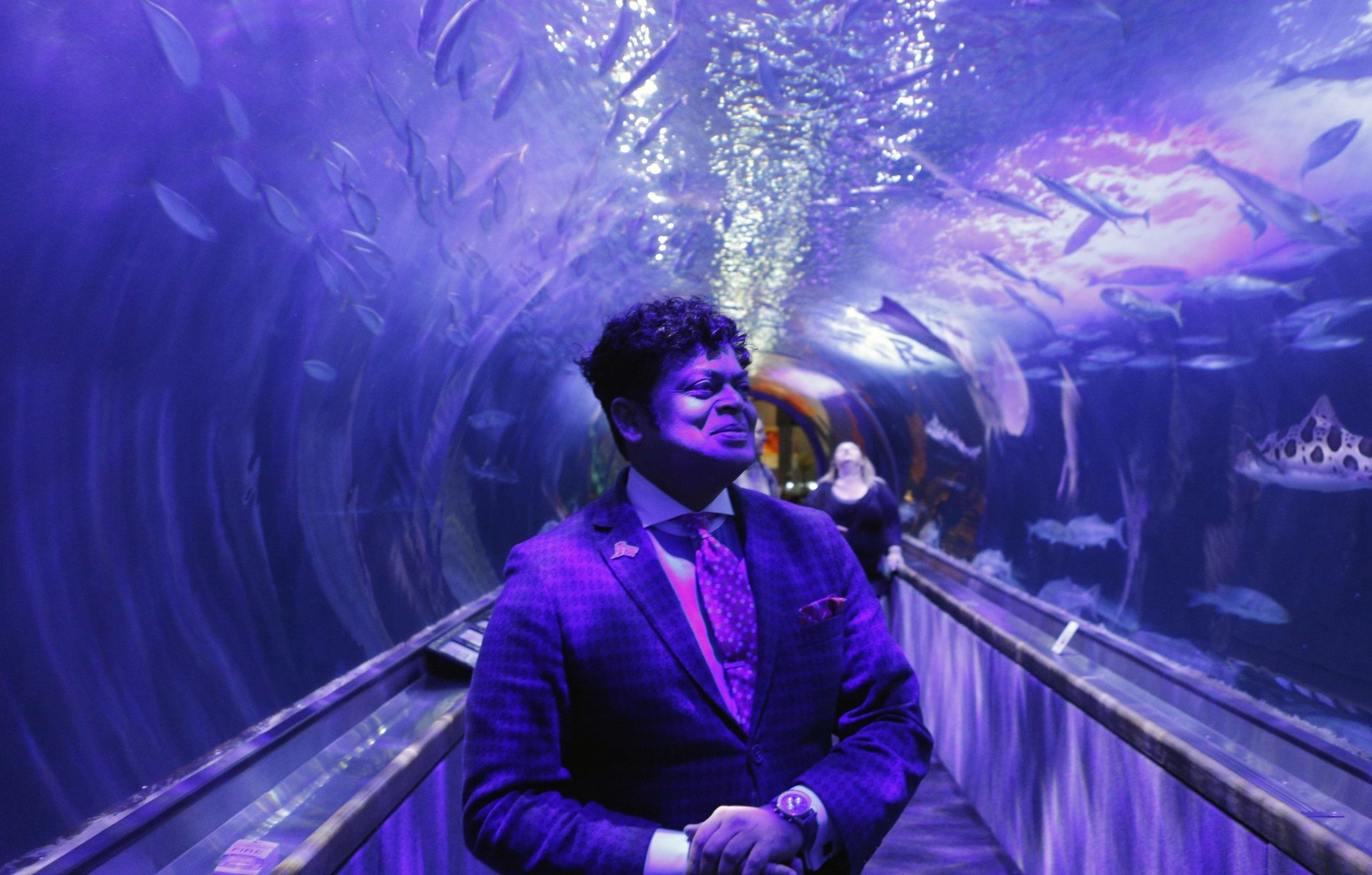A San Francisco aquarium boss who was ousted over claims of lavish spending says he was scapegoated for trying to expose an incompetent finance chief, an ineffectual board, and a secret pact involving stolen shark blood.
George Jacob quit the $350,000-a-year gig in June (opens in new tab) after the Aquarium by the Bay’s board accused him of exorbitant jetsetting and shelling out $461,000 for a concert in Dubai. In an explosive new lawsuit, he details his side of the story.
Jacob’s wrongful termination complaint doesn’t deny that mismanagement pushed the organization to the brink of failure but says others are to blame. Namely, he points to a finance chief whose “deficient command” of English made him hard to understand, a wealthy philanthropist who staged something of a coup, and a disgruntled director who covertly sent rare shark blood to Disney.
A long-brewing crisis?
In Jacob’s telling, the nonprofit set him up for failure from the very beginning.
When the museum recruited him in 2016, he said in the suit filed Friday, the board failed to disclose financial difficulties — including a bankruptcy he said was filed under his predecessor. After years of trying to steer the museum through a financial crisis, Jacob said, his staff turned on him and convinced a new board chair, Jon Fisher, to push him out.
The museum disputes those allegations. Bay.org, the nonprofit overseeing the aquarium, was in the black before Jacob’s hire, according to the organization’s lawyer, Lynne C. Hermle. And there was no bankruptcy, she added.
“That’s completely false,” she told The Standard. “When the museum hired him, they’d been net cash positive for years.”
Jacob’s claim goes on to accuse the museum’s animal care director of unilaterally signing a contract in 2022 that allowed Disney to collect 115 vials of blood from a “very special” shark — with no obligation to give the museum credit for research on the samples. Disney didn’t immediately respond to an email request for comment.
The blood came from a type of shark found at two U.S. aquariums, according to the lawsuit. “These seven-gill sharks are precious and rare,” the complaint says, “and are considered more prehistoric than normal five-gill sharks.”

Jacob accused the same director of going behind his back to let Fisher’s 10-year-old daughter practice diving in the aquarium to break a Guinness world record for most underwater tricks (opens in new tab) in a few-minute span. And he blames the manager for airing grievances that eventually turned Fisher against him.
The museum’s attorney said Jacob’s glowing comments in press coverage (opens in new tab) about the girl’s world-record bid belie claims that he was blindsided.
On the financial side, Jacob’s claim continues, matters worsened.
While the board ignored Jacob’s pleas to woo donors for outside help, internal finances suffered because of a language barrier, the suit said.
The lawsuit claims a museum finance director’s broken English was a problem because vendors couldn’t comprehend him. Jacob says the director’s “erroneous and questionable” spreadsheets and “confusing” statements raised concerns about financial mismanagement.
Tensions escalated over the next several months. Jacob leveled allegations against the board and his staff — and vice versa — until his attempt to get rid of the finance chief backfired when the board pressured the CEO to leave instead.
In the lawsuit, Jacob said he was denied due process and was defamed when Fisher and his allies shared their version of events with the press (opens in new tab), which contrasted the aquarium’s deterioration at its Pier 39 home with the CEO’s costly ventures abroad.
The lawsuit calls the firing discriminatory for targeting one of the few non-white museum directors in the nation: a CEO of Indian descent who was canned not long after the aquarium’s only Indian American board member was pushed out.
Jacob seeks unspecified compensation for an ordeal that caused “anxiety, depression, loss of self-esteem and motivation, lack of confidence, crying spells, frustration, mental anguish, isolation, introver[sion], all due to the trauma he sustained.”
Though it hasn’t been officially served with the lawsuit yet, the museum plans to ask a judge to compel arbitration.
Hermle said she doubts Jacob’s allegations would have gone far in court anyway, with its scattershot narrative, easily disputed numbers and non-sequitur anecdotes that don’t really support his core claim of discrimination.
Some of the details seem to have been included just to anger Fisher and other people he worked with, she added.
Regardless, Hermle said, “there’s not a chance in hell” Jacob will get the payout he’s angling for.
